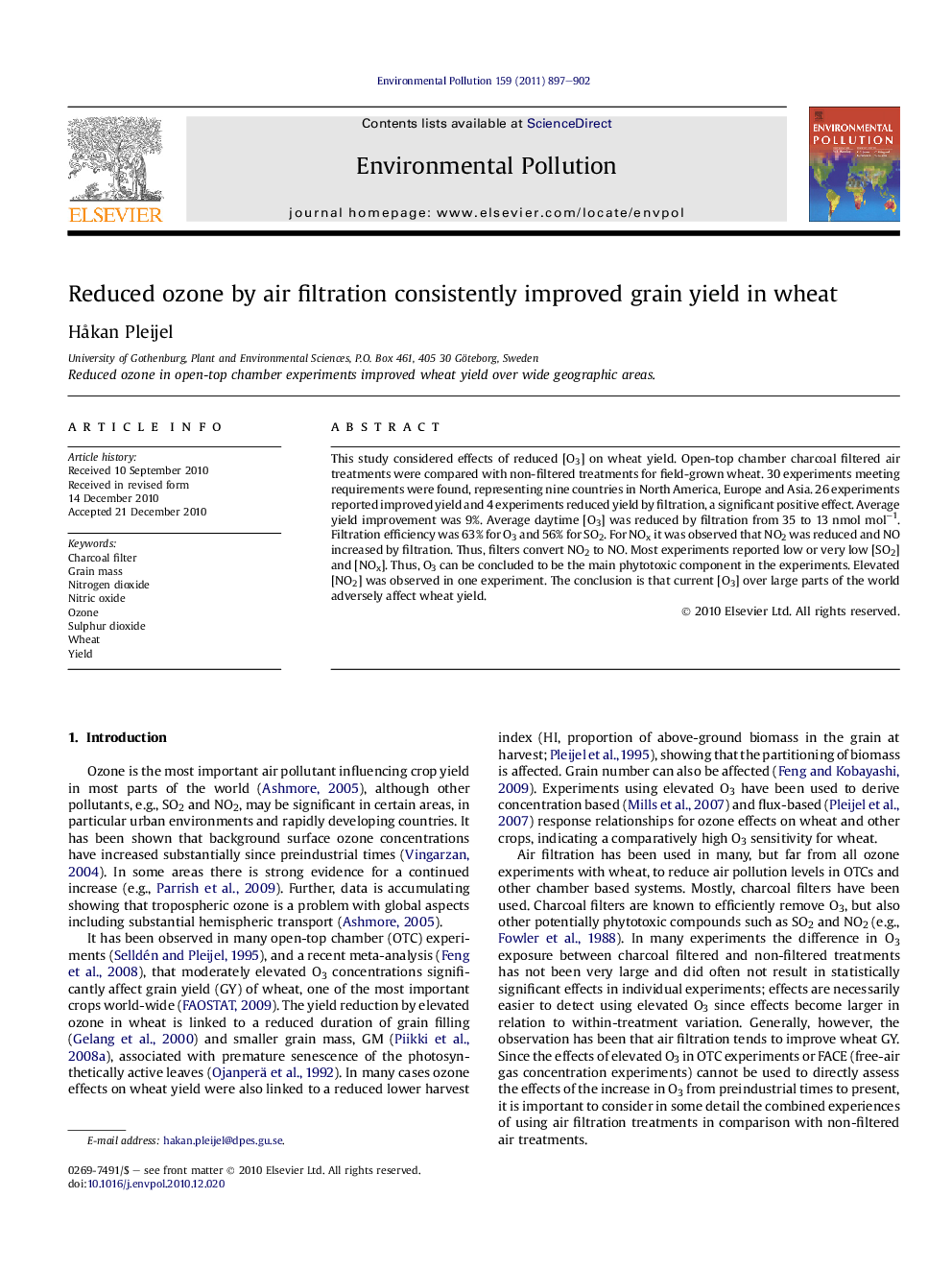| Article ID | Journal | Published Year | Pages | File Type |
|---|---|---|---|---|
| 4424839 | Environmental Pollution | 2011 | 6 Pages |
This study considered effects of reduced [O3] on wheat yield. Open-top chamber charcoal filtered air treatments were compared with non-filtered treatments for field-grown wheat. 30 experiments meeting requirements were found, representing nine countries in North America, Europe and Asia. 26 experiments reported improved yield and 4 experiments reduced yield by filtration, a significant positive effect. Average yield improvement was 9%. Average daytime [O3] was reduced by filtration from 35 to 13 nmol mol−1. Filtration efficiency was 63% for O3 and 56% for SO2. For NOx it was observed that NO2 was reduced and NO increased by filtration. Thus, filters convert NO2 to NO. Most experiments reported low or very low [SO2] and [NOx]. Thus, O3 can be concluded to be the main phytotoxic component in the experiments. Elevated [NO2] was observed in one experiment. The conclusion is that current [O3] over large parts of the world adversely affect wheat yield.
Research highlights► Charcoal air filtration consistently improved grain yield in wheat. ► Ozone was the most important pollutant to reduce wheat yield. ► Charcoal filters remove O3, NO2 and SO2 but emit NO.
